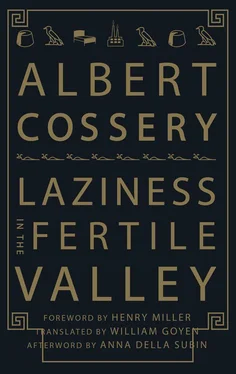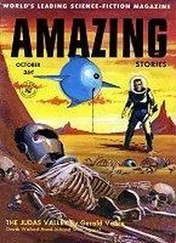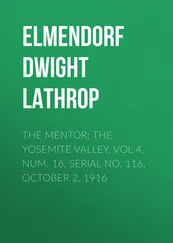Albert Cossery - Laziness in the Fertile Valley
Здесь есть возможность читать онлайн «Albert Cossery - Laziness in the Fertile Valley» весь текст электронной книги совершенно бесплатно (целиком полную версию без сокращений). В некоторых случаях можно слушать аудио, скачать через торрент в формате fb2 и присутствует краткое содержание. Год выпуска: 2013, Издательство: New Directions Publishing Corporation, Жанр: Современная проза, на английском языке. Описание произведения, (предисловие) а так же отзывы посетителей доступны на портале библиотеки ЛибКат.
- Название:Laziness in the Fertile Valley
- Автор:
- Издательство:New Directions Publishing Corporation
- Жанр:
- Год:2013
- ISBN:нет данных
- Рейтинг книги:3 / 5. Голосов: 1
-
Избранное:Добавить в избранное
- Отзывы:
-
Ваша оценка:
- 60
- 1
- 2
- 3
- 4
- 5
Laziness in the Fertile Valley: краткое содержание, описание и аннотация
Предлагаем к чтению аннотацию, описание, краткое содержание или предисловие (зависит от того, что написал сам автор книги «Laziness in the Fertile Valley»). Если вы не нашли необходимую информацию о книге — напишите в комментариях, мы постараемся отыскать её.
Laziness in the Fertile Valley — читать онлайн бесплатно полную книгу (весь текст) целиком
Ниже представлен текст книги, разбитый по страницам. Система сохранения места последней прочитанной страницы, позволяет с удобством читать онлайн бесплатно книгу «Laziness in the Fertile Valley», без необходимости каждый раз заново искать на чём Вы остановились. Поставьте закладку, и сможете в любой момент перейти на страницу, на которой закончили чтение.
Интервал:
Закладка:
“I should tell you that this setting, this household, they were my family.” On November 3, 1913, Albert Cossery was born in the Fagalla neighborhood of Cairo to a moderately wealthy Greek Orthodox family of Syro-Lebanese descent. “Certainly it’s romanticized,” Cossery said in an interview, “but my father didn’t work, and so he slept until noon. My brothers didn’t work either, nobody worked. In truth, we were all sleeping. If someone heard a noise in the house, no one would move to go see what it was, even if there had been a thief.” Laziness, Cossery claimed, was the only thing his father Salim had taught him. Born at the end of the nineteenth century in a village near Homs in Syria, Salim immigrated to Egypt, where he acquired farmland and properties in the fertile lands of the Delta. While the fields grew cotton, dates, and watermelons, Salim read the newspaper and took naps. Albert sprouted under the wing of his grandfather, who lived with them in Fagalla. One day the grandfather decreed he would no longer leave his bedroom — not because he wasn’t able, but because he no longer felt like it. When Albert brought meals up to him, he would find him with a black cloth tied across his eyes, in order to obtain the perfect darkness. Sometimes, his grandfather forgot the blindfold was on his face.
Albert, the youngest, would awake alone at seven in the morning for school, first at the Jesuit Collège des Frères de la Salle, and later at the French Lycée. He began writing his first novel in French at age ten. At seventeen, he published a book of poems titled Les Morsures (“Bites”), which lifted heavily from his god, Baudelaire. “I am alone like a beautiful corpse,” he wrote, in an ode to Nuit . “The first night of the tomb.”
Cossery was sent to university in Paris in the 1930s, but claimed he studied nothing at all. Yet he had discovered that being a writer gave a respectable alibi to his inherited laziness. On his return to Cairo in 1938, he fell in with the Egyptian Surrealists — George Henein, Edmond Jabès, Anwar Kamil, and the painter Ramsès Younane, among others. Cossery joined their group Art et Liberté, and contributed short stories to their journal al-Tatawwur (“Evolution”). In 1938, observing the growing hostility of Europe’s totalitarian regimes to the artistic spirit, the Egyptian Surrealists penned a manifesto: “Long Live Degenerate Art!” André Breton in a letter to Henein from Paris wrote, “The imp of the perverse, as he deigns to appear to me, seems to have one wing here, the other in Egypt.”
At twenty-seven, Cossery published a collection of short stories, Les hommes oubliés de Dieu (“Men God Forgot”), which sketched the themes to which he would continuously return over the next sixty years: the misery of the poor, the absurdity of the all-powerful, the will to laugh — and to sleep through it all. In “The Postman Gets His Own Back,” a neighborhood wages war against those who would disturb its slumber. To safeguard his countrymen’s morning sleep, Radwan Aly, the poorest man in the world, fatally hurls his one and only piece of furniture, an earthenware chamber pot, out the window of his hovel at the noisy greengrocer hawking his wares. Even the police are dumbfounded at his sacrifice. Down the street, a washerman sleeps in his rusted laundromat, nary a soap bubble in sight. His head sinks into a basin of slumber, heavy as a stone slipping to the bottom of a pool. Then, “like a diver leaving a wave, the laundryman reappeared once more on the surface of life.” He brings dreams up to the surface, like sea creatures.
During the war, Cossery joined the merchant marines and worked as chief steward on a liner called El Nil , ferrying passengers — many of whom fleeing the Nazis — on the route from Port Said to New York. It was uncharacteristic of him, this job, yet he would say it opened his world a bit wider. Cutting an elegant figure in his uniform, he seduced the prettiest of his passengers, and ignored the rest. According to an apocryphal tale, it was on a crossing of the Atlantic that Cossery met Lawrence Durrell. When they arrived in New York, the two were arrested on charges of espionage; Durrell protested that it was impossible, as Cossery spent all his time in bed. Though Durrell, in fact, would not visit the United States for the first time until 1968, it was through him that the first translation of Cossery’s stories reached an American readership. Dispatched by Durrell in Alexandria, Men God Forgot was published in Berkeley in 1946 by George Leite for Circle Editions. It was also through Durrell that Cossery met Henry Miller, who would become a lifelong champion. Miller so admired Cossery’s collection of stories, that “terrible breviary,” that when the translation failed to sell Miller bought up much of the stock — hundreds of copies — and peddled the book himself for decades. In Cairo in 1944, Cossery published his first novel, La maison de la mort certaine (“The House of Certain Death”) about the inhabitants of a derelict tenement building on the verge of collapse. “He is heralding the coming of a new dawn,” Henry Miller prophesied, “a mighty dawn from the Near, the Middle, and the Far East.” Cossery characteristically responded, “Perhaps that is exaggerated.”
As soon as the war ended, Albert Cossery left Cairo for Paris, where he would stay for thirty years without returning to Egypt. With a debonair look and an anarchist bent, he floated above the fray in a crowd of illustrious friends and admirers, such as Alberto Giacometti, Jean Genet, Tristan Tzara, Jean-Paul Sartre and Raymond Queneau. At night, he went out dancing with Albert Camus, who introduced him to his French publisher, Edmund Charlot. Cossery lived in a flat in Montparnasse, but soon tired of the constant back-and-forth between his lodgings and the hotel in Saint-Germain-de-Prés where he brought girls. (Though he always maintained that women exhausted him, by the time he reached his eighties, Cossery was claiming more than 3,000 conquests.) In 1951, he moved permanently into the Hotel La Louisiane, that “grim old hostelry known to the bad boys of the Rue de Buci,” as Miller described it in Tropic of Cancer.
One night in 1952, he met the actress Monique Chaumette over a bowl of peanuts; Cossery asked her to feed him some, she refused. Cossery gave her a copy of his latest novel, Les fainéants dans la vallée fertile, and she telephoned to say how beautiful she found it. Flattered, Cossery agreed to meet at his usual haunt, the Café de Flore. They shocked everyone by marrying in April of 1953. Yet married life did not agree with Cossery. She awoke too early. Her constant questioning as to what he would write next enervated him. And he refused to move from his austere hotel room. In a story from Men God Forgot, Cossery had described a hashish-addicted slacker named Mahmoud, who cannot shake the affections of the amorous Faiza. “He had wanted to teach her to sleep, to respect slumber, that brother to death which he himself loved so,” Cossery wrote, “but alas! she understood nothing of it.” Faiza asks Mahmoud how he can live this way. “‘How do I live? And what does that matter to you?” Mahmoud tersely replies. “Yes, I dream all the time.” Seven years later, Cossery and Chaumette divorced.
Impeccably dressed in a sport coat with a colored handkerchief in its pocket, Cossery would rise late each day, leaving the hotel only in the afternoons, perhaps to take in the sun and watch the girls of the Luxembourg gardens. He would sit for hours at the Flore doing nothing. To waiters who asked him if he was not bored, he replied: “I am never bored when I’m with Albert Cossery.” He wrote only when he had absolutely nothing better to do, producing a new novel roughly every decade. And yet, to exercise the right to laziness had its own miseries. Forever broke, he relied on his royalties and income from translations of his novels to survive. In the late forties, New Directions published the English translation of The House of Certain Death, and commissioned the novelist William Goyen to translate Les fainéants . Cossery’s letters to his American publisher James Laughlin reveal the underside of his elegant life of idleness: “My financial situation is totally desperate.” “The rate of the franc is 270 to the dollar.” “I am absolutely fucked.” “I am appealing to you to help me.” “Have you forgotten me?” “Send me a check as soon as possible. ” “I am always, and I continue to be, in extreme misery.” Laughlin replied with detailed instructions on how to change money on the Parisian black market for a better rate. At a meeting at a Paris café in the late fifties, Cossery complained so bitterly about how badly his books had sold in the US that Laughlin handed him money out of his wallet.
Читать дальшеИнтервал:
Закладка:
Похожие книги на «Laziness in the Fertile Valley»
Представляем Вашему вниманию похожие книги на «Laziness in the Fertile Valley» списком для выбора. Мы отобрали схожую по названию и смыслу литературу в надежде предоставить читателям больше вариантов отыскать новые, интересные, ещё непрочитанные произведения.
Обсуждение, отзывы о книге «Laziness in the Fertile Valley» и просто собственные мнения читателей. Оставьте ваши комментарии, напишите, что Вы думаете о произведении, его смысле или главных героях. Укажите что конкретно понравилось, а что нет, и почему Вы так считаете.












